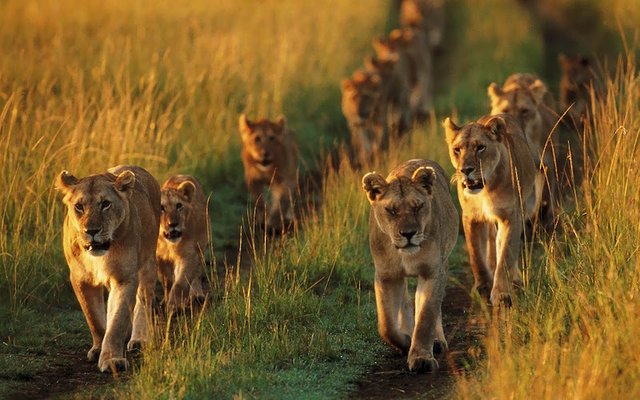
Africa is often perceived as an insecure and chaotic place to do business with.
In most of Sub-Saharan Africa, political stability has improved significantly in the past ten years. There are fewer conflicts, more democratic elections.
Did you know that Botswana is more politically stable than Germany. It is not the only country in the continents that scores that!?
Africa is too often viewed as one country, rather than a continent. The African continent consists of 54 countries. There are, corruption and poor governance, however, several African countries are improving the investment climate through strong institutions that guarantee the rule of law and a business climate suitable for the needs of small and medium enterprises.
Many African countries are not just politically stable; they are also comparatively prosperous, with a middle class that has consumer needs like those in industrial countries. African development has skyrocketed in the last five years, resulting in increased urbanization, social mobility and increased life expectancy.
“50-150 million Africans are classified as economic elites with spending power similar to working-class citizens in the West,” and an additional 350-500 million Africans live in households with stable jobs. Moreover, the McKinsey Global Institute reports that Africa boasts a robust and growing consumer class, with a combined spending power of over $800 billion.
While the world population is today growing slower than ten years ago, it is projected that by 2050 there will be 9.7 billion people. Of the 2.4 billion to be added to the world’s current population into that year, 1.3 billion, or more than half the growth, will be across Africa. In 2050, Nigeria will be the world’s third most populous country after India and China; by then Africa will need 400 million jobs.
China Biggest Player in Africa
Per the Wall Street Journal, Chinese exports to African countries amounted to $73.4 billion in 2011, more than any other nation, and most importantly, more than double the worth of U.S. exports to Africa, which stand at $31.5 billion.
Between 2009 and 2014, the Chinese signed approximately $328 billion in construction projects in Africa, an average of about $54 billion a year, according to data from the international law firm Baker & McKenzie. This trend will continue as China turns to its new development bank, the Asian Infrastructure Investment Bank, to focus more of its economic diplomacy around the world on building infrastructure.
The World Bank is probably one of the best sources for information to do this kind of comparison given that China now wins more construction contracts from the bank than any other country in the world. In fact, between 2007 and 2015, Chinese companies won almost a third of all World Bank infrastructure projects in Africa. There is a lot of data to work with to compare both Chinese and OECD countries’ performance.
India is rapidly stepping up their engagement in Africa.
In October 2015, New Delhi hosted the India-Africa Forum Summit, which for the first time brought together all 54 African countries. India showed interest in strengthening relations with African countries, discussing economic as well as political and diplomatic issues.
Historically, India had an early presence in East Africa (Kenya, South Africa, Mozambique and Uganda) and Southern Africa (South Africa, Mauritius, Madagascar and Seychelles). There is an important African population of Indian descent in these countries. While Indian investments are mostly concentrated in these countries due to the early historical ties and significant populations of Indian origin, more and more Indian companies are investing in West and North Africa, Senegal, Angola and DRC.
Compared to other major world economies, India is an emerging economy, but it is making inroads into Africa. Indian companies are active in several sectors in African economies, among them automobiles, services (mainly telecommunications and finance), pharmaceuticals, construction and resources, Agriculture.
India-China Rivalry in Africa?
As for India and China in Africa, in terms of investment and trade statistics, there is little competition. In 2014, China’s trade with Africa was at $200 billion, while trade between India and Africa was at $70 billion
Other Countries are paving the way for future investment and this year Japan Challenges China's African Influence.
Japan
In August 2016, the sixth Tokyo International Conference on African Development was held in Nairobi. Japan committed to invest $30bn in Africa over the next three years.
Starting this year, Japan will make a $10bn investment in the continent's infrastructure development, focusing on electrical power, urban transport systems, roads and ports.
An additional $20bn will flow into Africa through investments from Japan's private sector during the same period, he added.
Japan-China Rivalry in Africa?
In 2015, China, Africa's largest trading partner, recorded total trade in Africa worth approximately $179bn, while Japanese trade with the continent stood at $24bn.
UAE Trade with Africa
Total merchandise trade between the UAE and Africa shot up from $5.6 billion in 2005 to $17.5 billion in 2014. This shows their economic ties have zoomed manifold. More trade delegations are being sent from UAE to Africa and interactions are making the trading process smoother.
The Eurozone crisis, low growth, unemployment, and tough austerity measures. One solution that Europe’s leaders should pursue is to develop strategic partnerships with African governments aimed at increasing exports and they need to think differently in putting in place a real sustainable and lasting development…….the Chinese have become masters at this strategy. Americans and Europeans to… learn from those who have succeeded…….
Africa definitely will be soon the engine of global economic growth and. Unquestionably Africa is becoming a new strategic playground where economic and geopolitical rivalry. Africa turns into new investment destination. Investors are courting Africa like never before. The resource-rich continent, which has massive business potential, is turning into the new investment hub for many countries.
Great article!
Downvoting a post can decrease pending rewards and make it less visible. Common reasons:
Submit